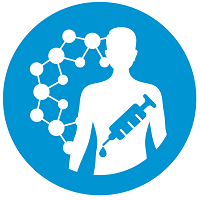Preclinical, Clinical, and Translational Sciences
Rapid Fires: Novel In Silico and In Vitro Approaches in Drug Development 2
Poloxamer-Coated Camel Milk Exosomes for Oral Cannabidiol Delivery: A Triad of In-Silico, In-Vitro, and In-Vivo Insights
Monday, November 10, 2025
3:30 PM - 3:45 PM CT
Location: 225 CD

SANDEEP Chary PADAKANTI, PhD
Post Doctoral Research Associate
FLORIDA A&M UNIVERSITY
TALLAHASSEE, Florida
Rapid Fire Speaker(s)
Oral delivery of lipophilic cannabinoids like cannabidiol (CBD) is limited by poor solubility,
permeability, and first-pass metabolism. This study presents a novel, bio-inspired delivery
platform using camel milk-derived exosomes surface-functionalized with mucoadhesive
poloxamer-407. Exosomes (~1×10¹¹ particles/mL) were isolated via differential
ultracentrifugation and coated with 10% w/v poloxamer layers confirmed by DSC and FT-IR.
Post-coating analysis confirmed retention of vesicle integrity, size, and CD9/CD63 expression. In
vivo pharmacokinetic studies in Sprague Dawley rats revealed an increase in the Cmax values
across three groups: poloxamer-coated CBD-loaded exosomes (719.58 ± 27.63 ng/mL), CBD-
loaded exosomes (448.90 ± 78.53 ng/mL), and the control formulation (163.39 ± 24.97 ng/mL).
In-silico GastroPlus™ modeling using ACAT and PBPK modules indicated enhanced absorption
in the duodenum (27.5%) and jejunum (60.25%). The formulation outperformed uncoated
exosomes by 1.6-fold. This GRAS-compliant, scalable exosome–polymer hybrid platform holds
strong translational promise for improving the oral bioavailability of BCS Class II/IV and biologicals.
permeability, and first-pass metabolism. This study presents a novel, bio-inspired delivery
platform using camel milk-derived exosomes surface-functionalized with mucoadhesive
poloxamer-407. Exosomes (~1×10¹¹ particles/mL) were isolated via differential
ultracentrifugation and coated with 10% w/v poloxamer layers confirmed by DSC and FT-IR.
Post-coating analysis confirmed retention of vesicle integrity, size, and CD9/CD63 expression. In
vivo pharmacokinetic studies in Sprague Dawley rats revealed an increase in the Cmax values
across three groups: poloxamer-coated CBD-loaded exosomes (719.58 ± 27.63 ng/mL), CBD-
loaded exosomes (448.90 ± 78.53 ng/mL), and the control formulation (163.39 ± 24.97 ng/mL).
In-silico GastroPlus™ modeling using ACAT and PBPK modules indicated enhanced absorption
in the duodenum (27.5%) and jejunum (60.25%). The formulation outperformed uncoated
exosomes by 1.6-fold. This GRAS-compliant, scalable exosome–polymer hybrid platform holds
strong translational promise for improving the oral bioavailability of BCS Class II/IV and biologicals.
Learning Objectives:
- Upon completion, participant will be able to create a GRAS camel milk exosome–poloxamer coated hybrid formulation.
- Upon completion, participant will be able to evaluate CBD oral bioavailability via in-vivo pharmacokinetics data
- Upon completion, participant will be able to evaluate in-silico GastroPlus® modeling.


